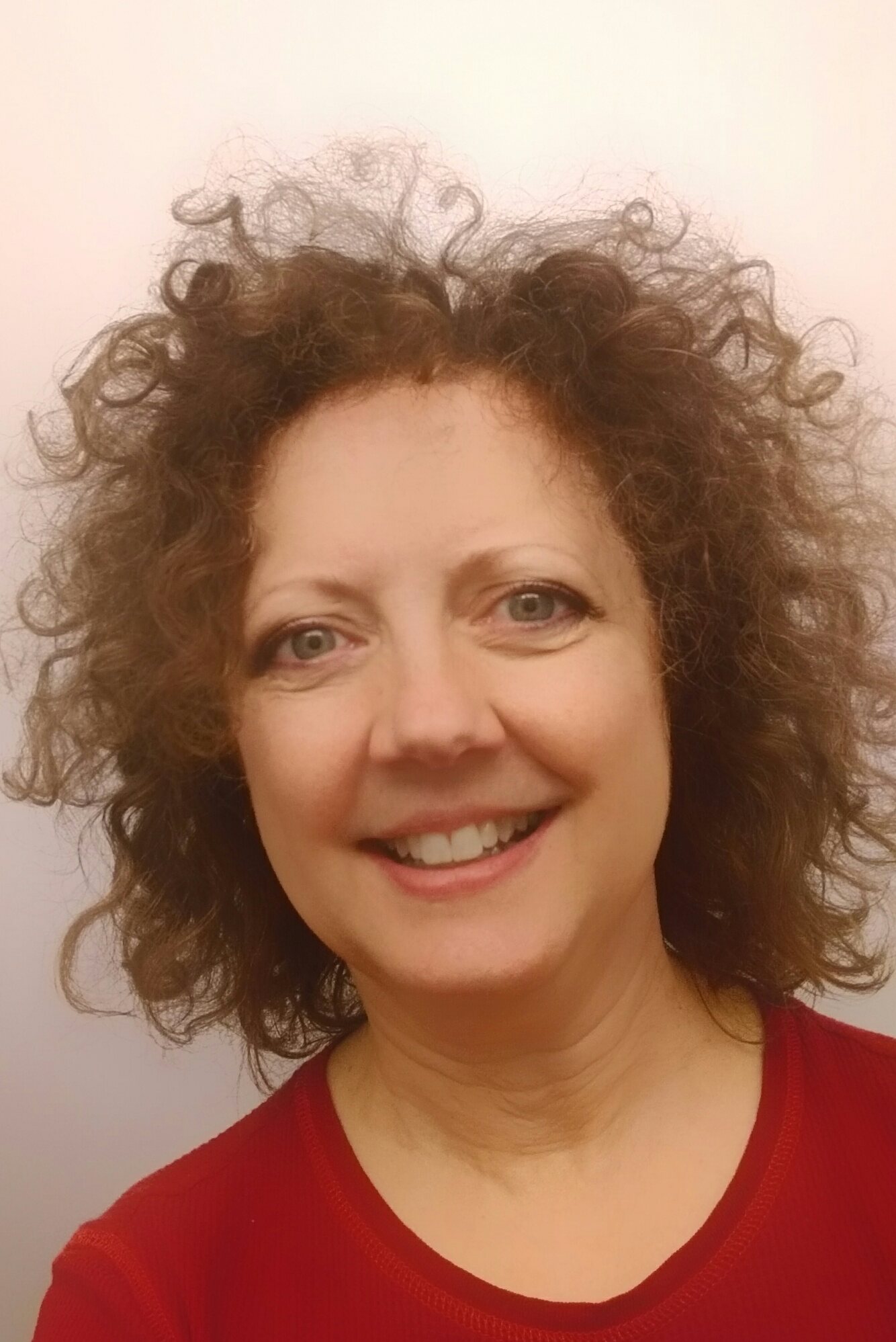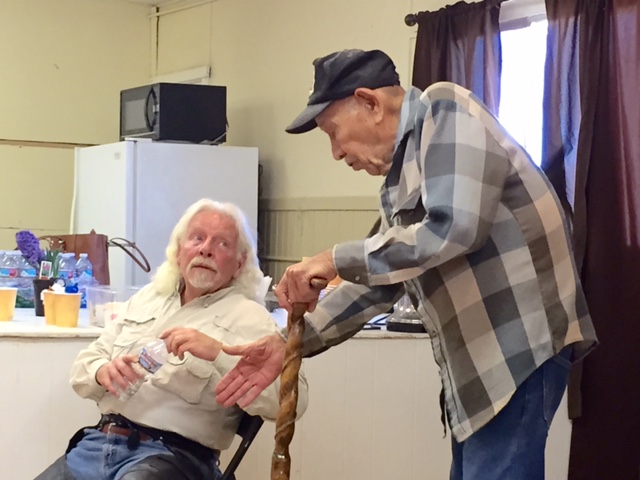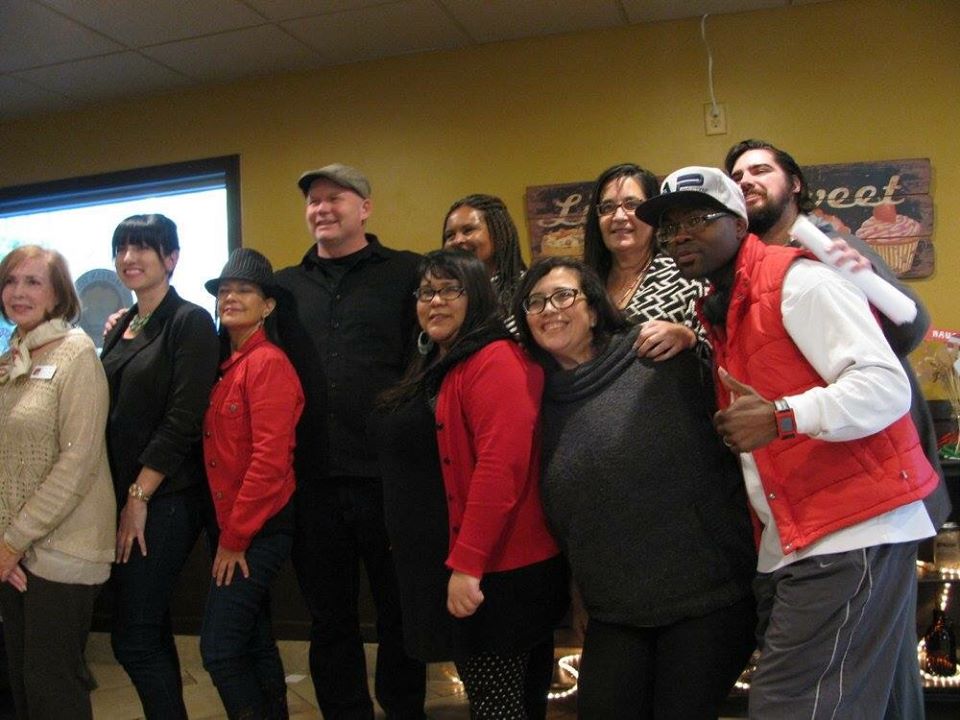Connie Perry is an artist, comic performer, publicist, and writer. She joined the late Sue Ribner's Cancer Writing Workshop at Roosevelt Hospital in early 2014, just after her cancer treatment, her "hysterical-ectomy." She is currently a participant in Emily Rubin's Write Treatment workshops at the hospital, where there are exciting plans to publish an anthology. As a freelance book publicist, Perry connects authors to media. As a theater usher, she diffuses customer service stress by performing her one-woman show, "Theatre Obsession: Saucy Tales From the Aisle." She will be performing in the ONE Festival in New York City, April 27 and 30. Her visual arts project, utilizing DeaR postcards as seen in Summer Streets 2015 and the Garment District Arts Festival, will connect with comedy variety shows until the presidential election in 2016. Visit @DeaRcards on Instagram for more information.

As a participant in Emily Rubin's Write Treatment workshops for people dealing with and surviving cancer, funded through the Readings & Workshops program at Poets & Writers, we writers gather close around the table, buoyed by our continuing bravery. Not because we have each had cancer battles, but because we face blank pages. There is courage in our pens, our prose spilling onto our notebook paper. We face our pain, our past, and our present with soon-to-be scrawled imagination.
The time to be heroes is now, when the prompt has been given and the scratch of pens unites. We hum along, intent, concentrating, as the air duct hums above us. We are silent, reaching towards the perfect word or any word that describes or harnesses the beast. Oh rise up to us, dear muse, gather us towards a salvation. Give us this half hour of life, dripping and dropping or drowning upon the page.
Real or imagined, our lives are entwined within the hallowed pools of spilled ink, shards of dreams, and delights wanting to be read aloud. The words carry us along the timeless highway of connection. Do we all hover over our process or do we sail full-bodied towards a new happening, a new pronunciation, or a new verb? A new definition of closeness comes forth from our writing. We are humbled or overjoyed by word choice; one that comes in a flash yet has a very deep hidden meaning from some vivid past experience.
How do we know how to spell so precisely as letters form under our might? Cosmic rays of intelligence streak across the margins, coloring our lives with magic, hope, and truth. Do we dare to be so bold and blunt, to wildly run to the edge of sanity? Of course, we need this catharsis of earned sentences. We need this healing of combined stories. Or, we just need to make shit up.
Oh bold prince of black ink, earn your way across this boundary of paper. Churn and turn out endless drafts of optimism or cheeky promise. Do not let me down by running out of things to say. This writers group gropes forward to acknowledge the awe and to continue a dialogue with the universe.
Time seems to stand still as penmanship erodes to blurs and barely formed missives. Then, time speeds up as breath is baited and imaginations fired by plucking from dreams or sentimental wanderings. Be still our hearts as we transfer life forces to blue-lined commitment.
The planets lend their full support; the gods look down upon the labor with admiration, as long-held truths are laid bare. Simple connections between humans are being honored and trusted amid the pushing forward of language.
We feel exhaustion, emotion, exhalation, yet all so exquisite. The senses are full, alive, and driving towards one final statement.
My writing friends, my heroes surround me, excited by the closeness and the exertion, all of us gliding towards a complete piece. Tranquility sets in as the closure sentence rounds out. And for a brave finale, we shall read aloud our work.
Photo: Connie Perry. Photo credit: Connie Perry.
Support for Reading & Workshops in New York City is provided, in part, by public funds from the New York State Council on the Arts, and the New York City Department of Cultural Affairs, with additional support form the Louis & Anne Abrons Foundation, the Axe-Houghton Foundation, the A.K. Starr Charitable Trust, and the Friends of Poets & Writers.





 Mojave Desert Writing Workshop: February 15, 2016
Mojave Desert Writing Workshop: February 15, 2016 Songs for San Bernardino / Reading Helps Inland Empire Heal: December 20, 2015
Songs for San Bernardino / Reading Helps Inland Empire Heal: December 20, 2015
